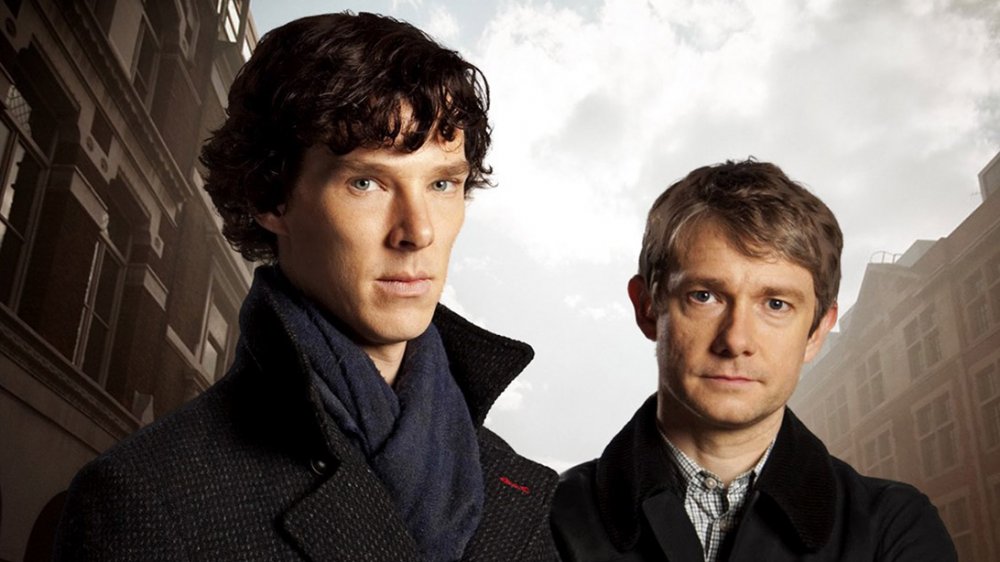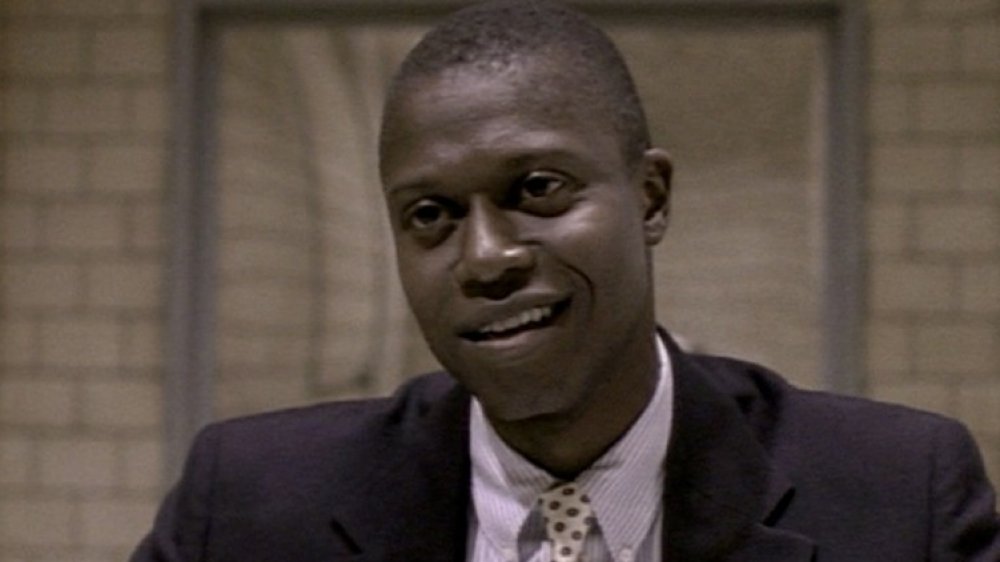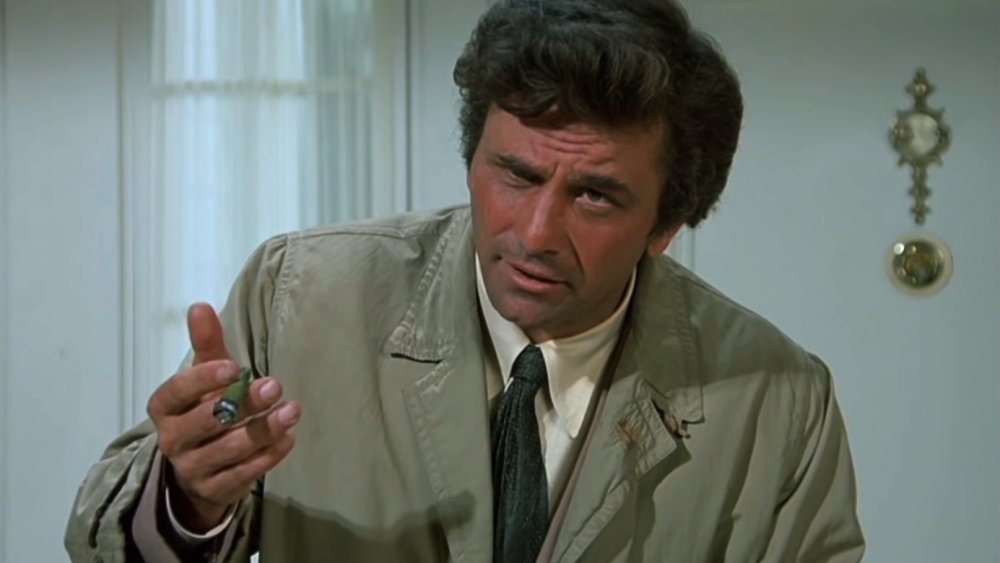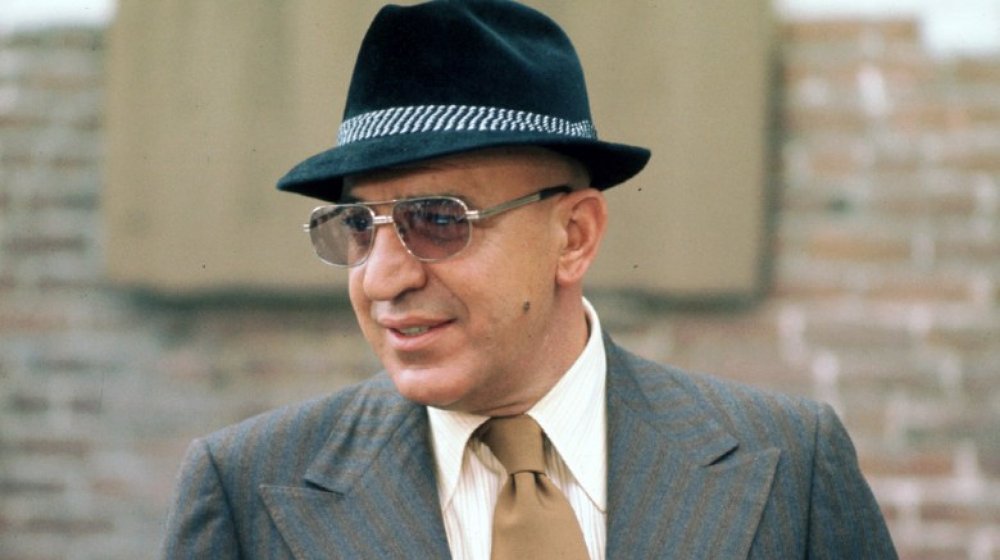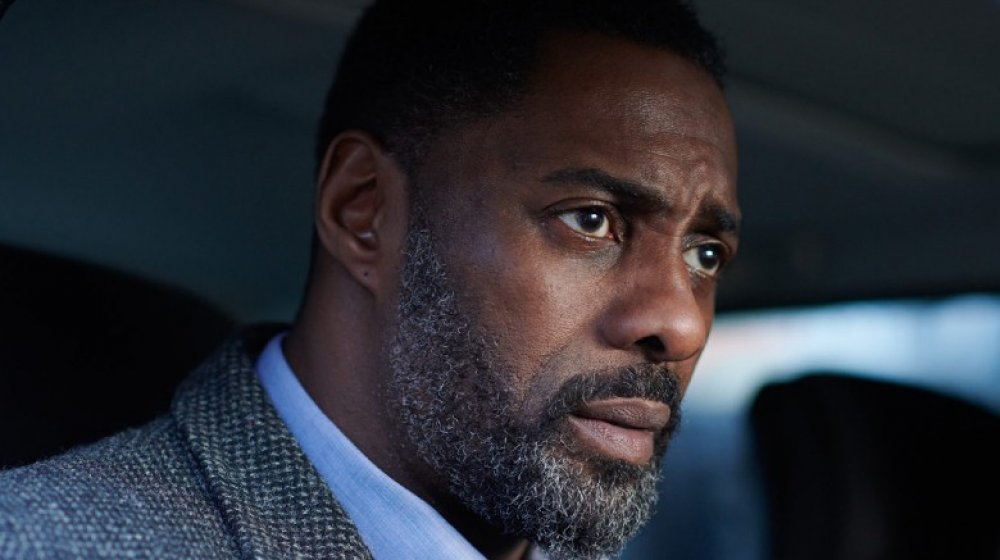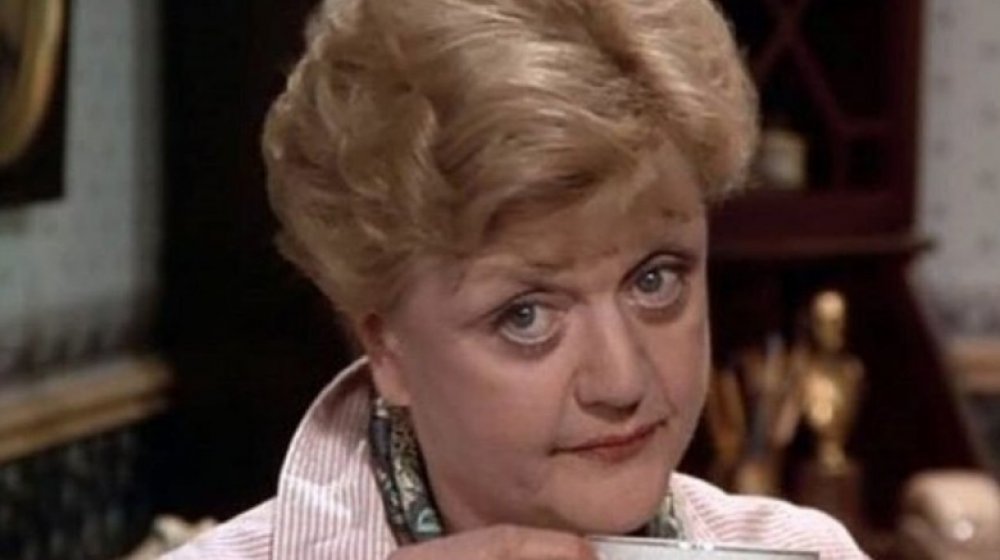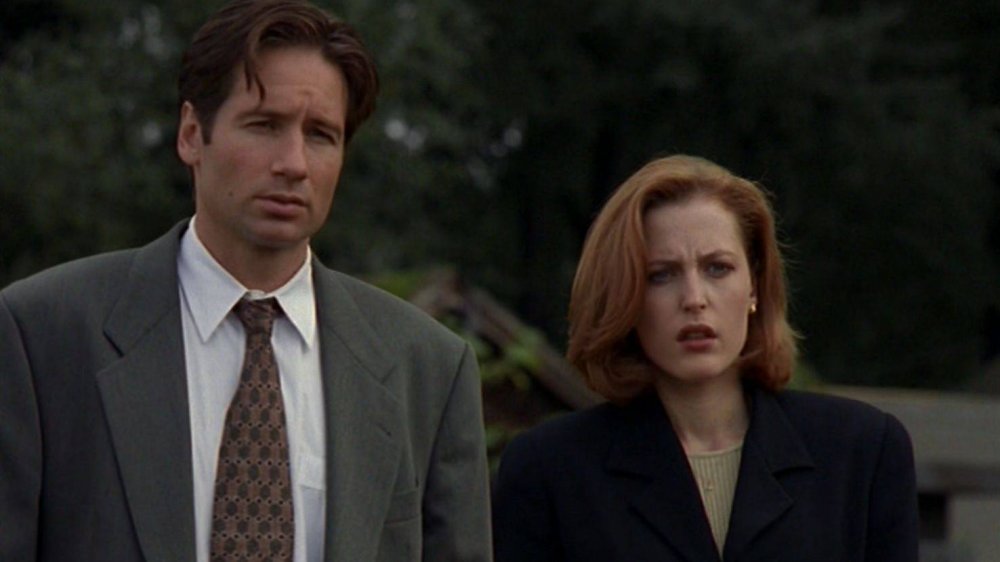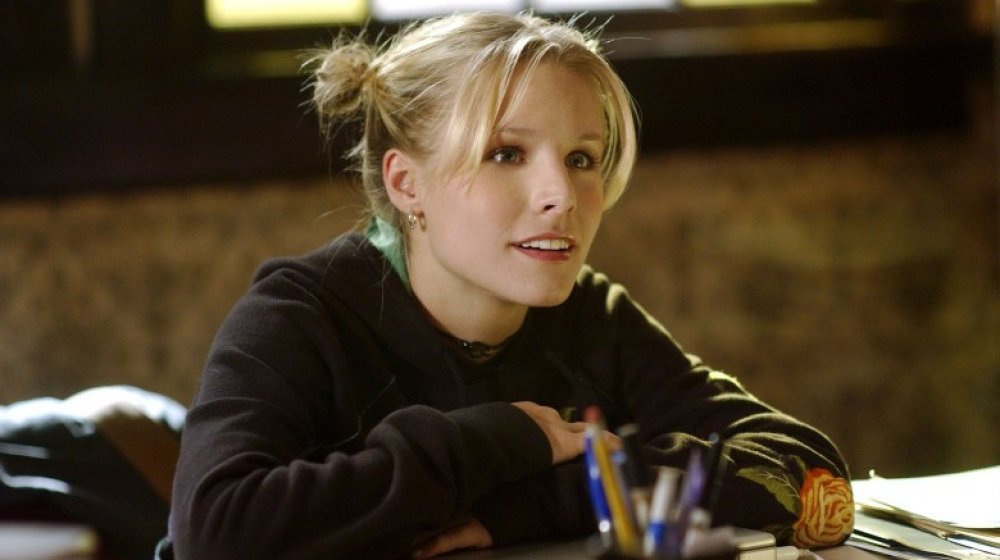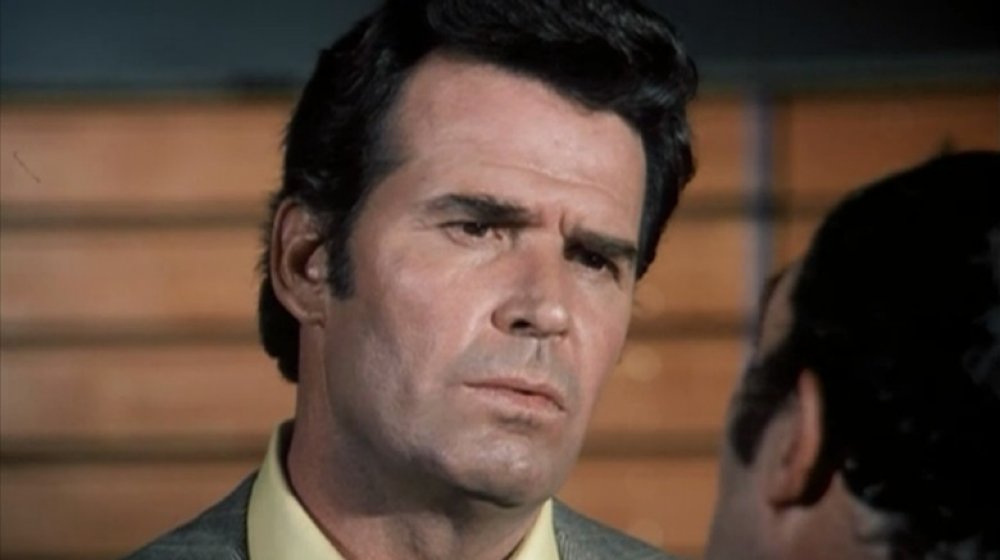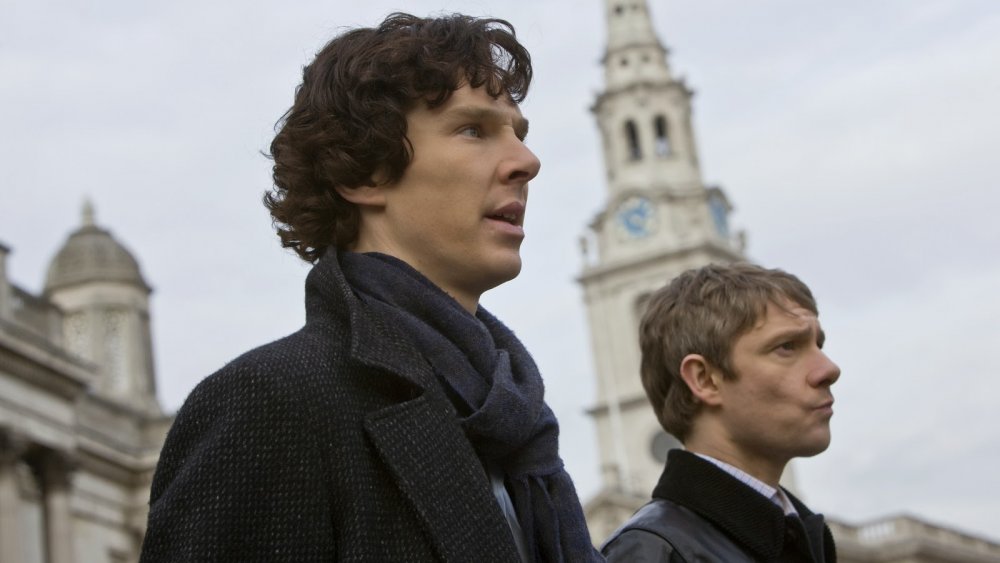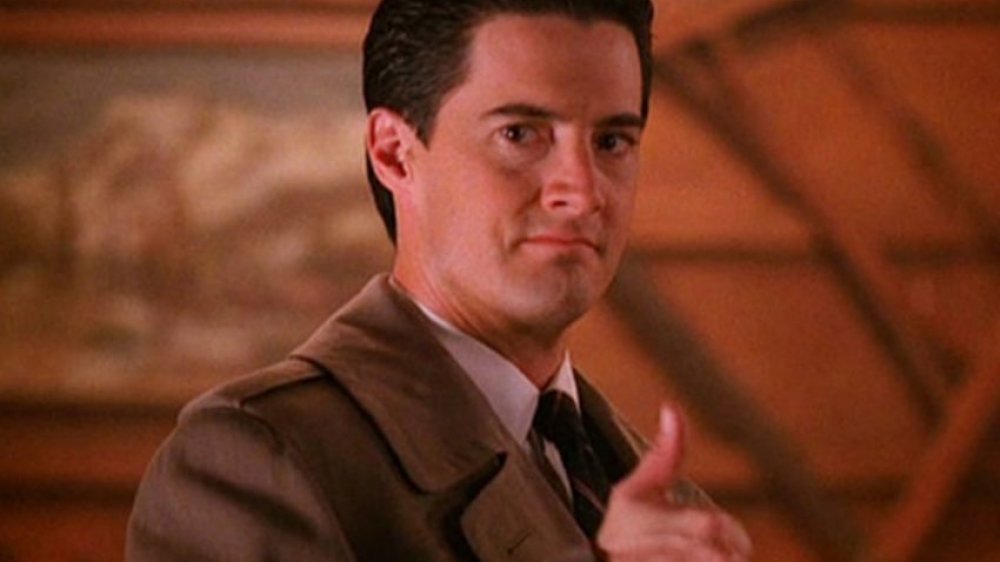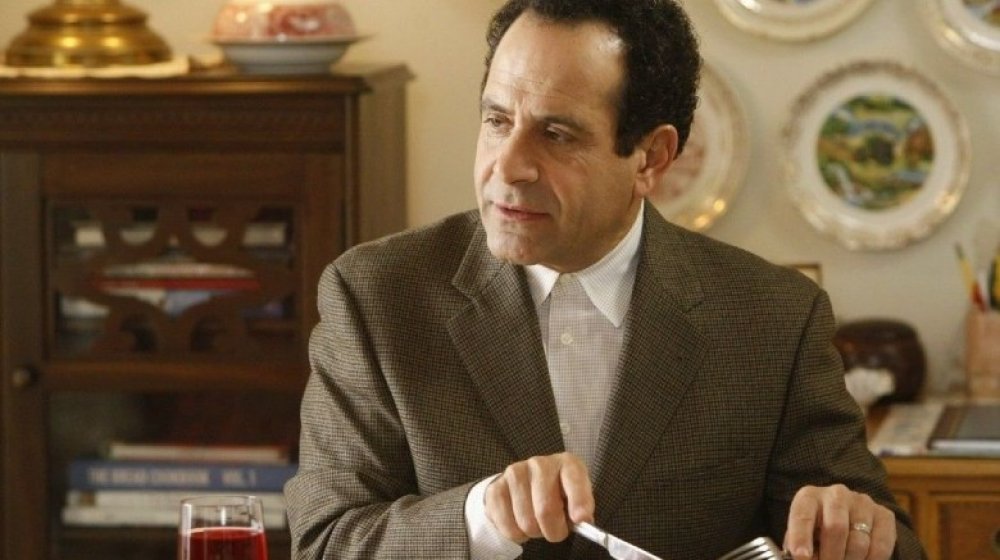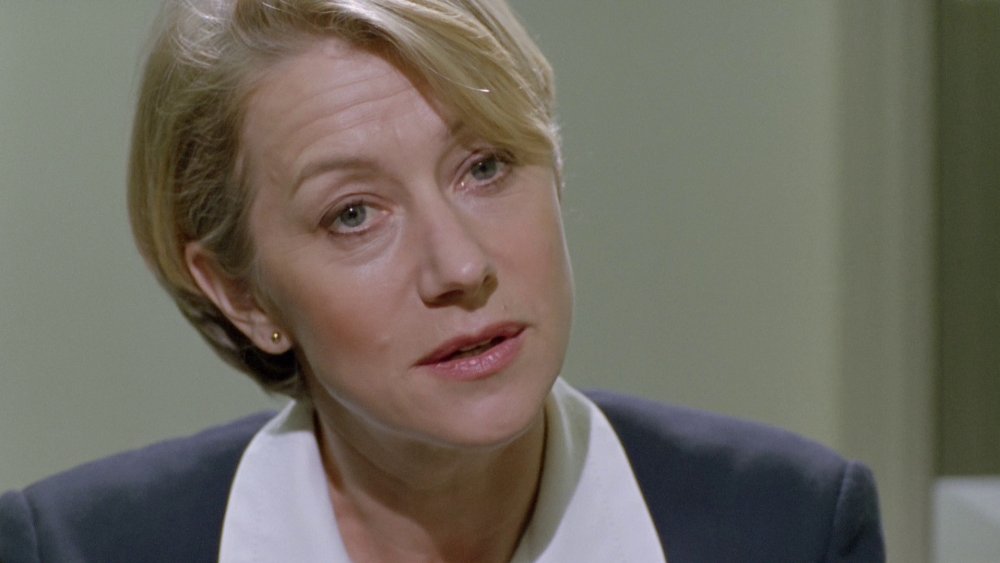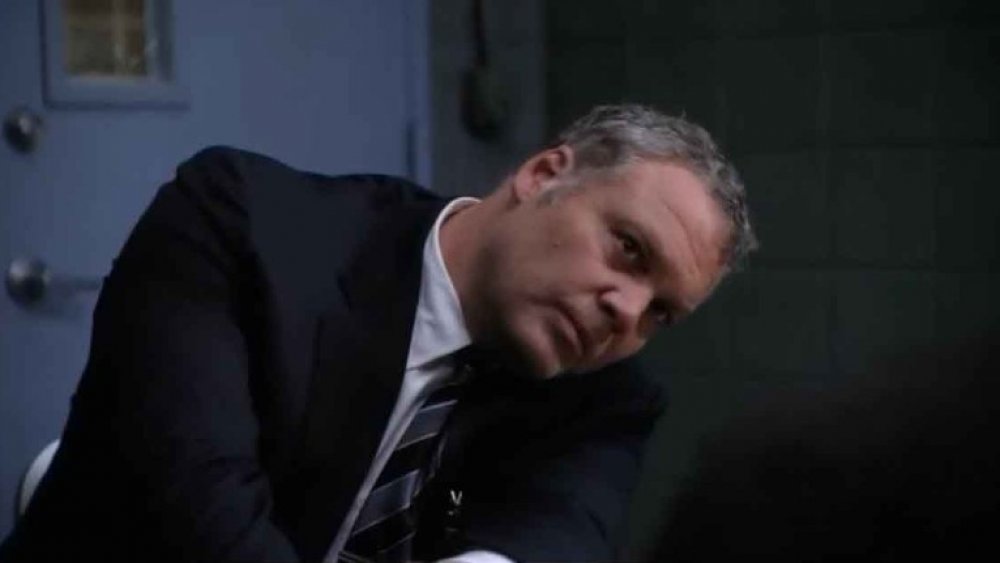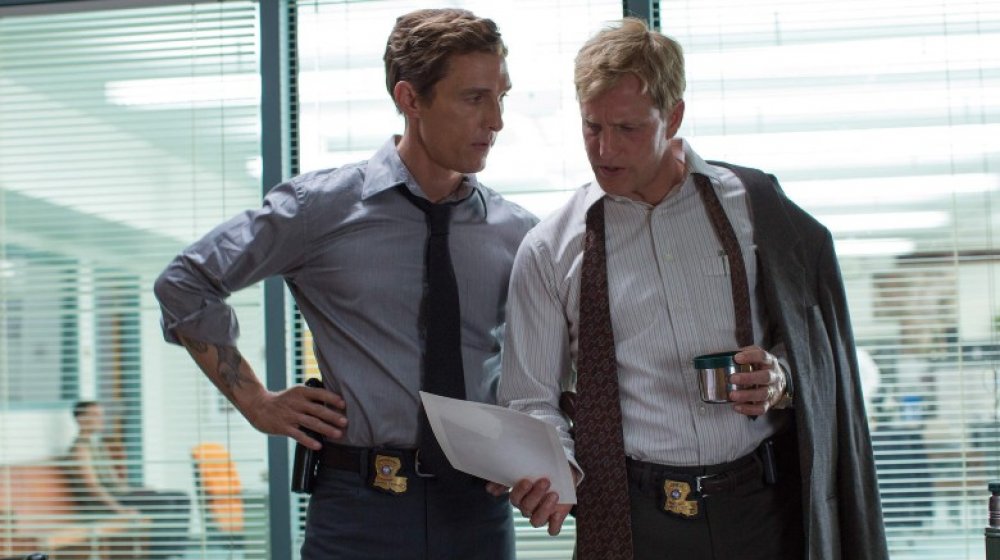The Greatest Detectives In TV History
Television has no shortage of detectives. Whether they're modern reinventions of classic sleuths, gritty investigators outwitting suspects in interrogation rooms, or federal agents chasing aliens and werewolves, it can seem like every other TV show out there is about a hero unraveling a mystery in pursuit of conspiracies, murderers, or even proof of the supernatural.
But not all detectives are created equal. With such a glut of heroic investigators on television, some naturally rise above the rest. Sometimes, it's their nearly superhuman aptitude for solving crimes that wins us to their side, and other times, it's their unique foibles that not only humanize them but — while first appearing to be weaknesses — prove to be the detectives' greatest strengths. And sometimes we don't know why we enjoy following their mysteries so much. We just know when the message on the screen pops us asking if we're still watching, the only right answer is, "Yes, of course, stop asking."
Whether they find their killers through keen psychoanalysis, by playing dumb, or by throwing rocks at bottles in the woods, here are TV's greatest detectives.
Frank Pembleton is Homicide's most brilliant detective
Years before he was managing other cops in the sitcom Brooklyn Nine-Nine, Andre Braugher was making suspects crack under interrogation as Frank Pembleton in Homicide: Life on the Streets.
Using a combination of intimidation, false sympathy, and misdirection, he's the good cop, the bad cop, and everything in between. It earns him a legendary reputation for getting crooks to out themselves, and Pembleton isn't shy about letting the other detectives know how good he is. Temperamental and arrogant, Pembleton also isn't the kind of guy you'll find hanging out with his fellow detectives outside work. His grudges run deep with cops who've slighted him, and he goes back and forth between barely tolerating and outright despising his partner, Tim Bayliss (Kyle Secor).
Often struggling with issues of faith, integrity, and the bigotry he finds in Baltimore's Police Department, Pembleton is easily Homicide's most layered and intriguing character. Watching Braugher play the volatile and brilliant detective is the best reason to watch the show.
Columbo was as much of a mystery as the crimes he solved
No gathering of TV's greatest detectives could be complete without Peter Falk's Lieutenant Columbo, the fictional sleuth who made an art out of playing dumb. Always found in his trademark raincoat, usually with a cigar that might not even be lit, Columbo solved crimes on-and-off for three decades. The brilliant, unassuming detective made a habit of appearing as inept as possible to his suspects. He always managed to catch them off guard after saying his catchphrase, "just one more thing," and then unloading what he really knew, usually getting the killer to spill the beans all on their own.
Part of what's so brilliant about Columbo's conception is that he solved mysteries by being a mystery. We never saw his wife, even though he mentioned her often. He occasionally let tidbits drop about his life before becoming a detective, but he also admitted plenty of the stories he told others were fictional. In fact, in all of the character's appearances, he refused to so much as reveal his first name. We know it's Frank because the name was always clearly visible on his ID, but when asked for his first name, he'd typically respond, "Lieutenant."
Kojak loves ya, baby!
"Who loves ya, baby?"
The answer, of course, is Theo Kojak, the bald cop made famous by the late Telly Savalas. Starting off with the 1973 TV movie The Marcus-Nelson Murders, which served as a pilot for Kojak, Savalas made his tough, witty cop an American icon. Just try to cast a man with a shaved head as a cop and not have at least one other character comically refer to him as "Kojak." Go on. We dare you.
Known for his habit of sucking on lollipops — which he starts early in Kojak's first season to curb his smoking habit — and his infectious catchphrase like "who loves ya, baby?" and "cootchie coo," Kojak isn't a forensic genius or an intuitive criminal profiler. He's a charismatic, tough, and clever cop who would rather eat a bullet than take a bribe. While Kojak was canceled in 1978 because of a shrinking viewership, Telly Savalas continued to return to the character in seven TV movies ranging from the mid-'80s to early '90s. In 2005, USA remade Kojak with Ving Rhames starring as the titular cop, but the series folded after nine episodes.
Luther is a volatile and fascinating TV detective
BBC's Luther boasts a small army of awards and nominations. There are plenty of good reasons for that, and chief among them is Idris Elba, who plays Detective Chief Inspector John Luther, a cop whose brilliance is matched only by an intense passion that doesn't always go in healthy directions. While he refuses to use lethal force against suspects and hates guns, the ugly things he's seen on the force leave him with a lot of rage.
And just because he won't kill the bad guys doesn't mean he always goes by the book. As events unfold on Luther, the titular detective covers up crimes, goes to murderers for counsel, and at one point, he's on the run from the rest of the police when he's framed for murder. The more sensational elements of Luther sometimes chip away at your suspension of disbelief. However, Elba's depiction of Luther is what anchors the series and renders his character one of the most fascinating detectives to watch on television, well before his leap to the big screen.
Jessica Fletcher is always the smartest one in the room
What's a great side gig if you're a mystery writer? Well, solving real mysteries, of course. That's what novelist Jessica Fletcher finds herself doing in all 12 seasons of Murder, She Wrote. Angela Lansbury played the amateur sleuth who's usually tapped by a wrongly accused friend or loved one to find the real guilty parties. Whether she's in the small fictional town of Cabot Cove, Maine, or traveling to promote one of her dozens of whodunnit novels, Fletcher always proves herself superior to the official authorities in every way and finds the real killer.
Murder, She Wrote was an extremely successful series, lasting from 1984 to its conclusion in 1996. Lansbury made TV awards history in her role as Jessica Fletcher, earning 12 Emmy nominations for Outstanding Lead Actress in a Drama Series — the most Emmy nominations for that category ever. In a 2018 interview, Lansbury said she thought it was Fletcher's differences from other fictional detective that was the key to her popularity. "She started off a little bit goofy, but finally I made her a woman of my age and of my intellect," Lansbury told Star2.com (via VisionTV) "I think that is what made her such an appealing character for the world — because she was somebody that people could understand and make part of their lives."
Mulder and Scully know the truth is out there
Considering David Duchovny and Gillian Anderson played FBI Agents Fox Mulder and Dana Scully respectively for 11 television seasons and two feature films, you'd think they would've closed more cases. But in their defense, while Mulder and Scully hunt down their share of murderers on The X-Files, for the most part, their quarry is either the kind that's from the stars or the kind that's hiding under your bed.
In the beginning of the show, Mulder is a believer in UFOs, ghosts, vampires, and just about anything you'd find in the science fiction and fantasy sections of the bookstore, while Scully is a scientist sent to debunk his work. Over the course of the series, the stubborn skeptic and the conspiracy-obsessed fantatic draw closer to one another, both in their hearts and in their view of the world. Scully forces Mulder to not necessarily blame aliens every time his car won't start, while Mulder convinces Scully that, every now and then, there's more going bump in the night than the neighbors' cat.
While at times the quality of The X-Files is wildly uneven, it's the interaction between these two detectives — both looking at the world through very different eyes — that keeps you wanting more, resulting in one of the best sci-fi shows of the '90s.
As one of TV's greatest detectives, Veronica Mars wouldn't give up
Veronica Mars is the detective so good that even cancellation can't keep her down.
Kristen Bell stars as the titular teenage detective in the appropriately named Veronica Mars, and the series begins in the wake of her family's near destruction. Veronica's best friend is murdered, her father is ousted as the sheriff of the fictional town of Neptune, California, and her mother abandons them. Veronica goes from being at the top of the high school pecking order to the bottom. But then she begins helping her father in his new role as a private detective and becomes something of a detective on her own. She starts solving mysteries for her classmates, as well as investigating larger puzzles about her hometown. Tenacious, independent, and smart, Veronica proves to be one of Neptune's most formidable citizens.
In spite of a strong cult following, Veronica Mars was canceled in 2007. However, in a 2013 Kickstarter campaign, Veronica Mars creator Rob Thomas succeeded in reaching the $5 million goal needed to fund the Veronica Mars film which released the following year. In 2019 — 12 years after the series was canceled — a fourth season aired on Hulu.
Jim Rockford isn't like other private eyes
Jim Rockford (James Garner) isn't your average private eye. At least, he's not your average television private eye. The hero of The Rockford Files goes against the grain. Rather than clashing with the official authorities over every case, Rockford actively avoids any contact with the police, initially refusing to take any cases the police are already involved in. He doesn't like getting physical and does his best to never use his gun since he doesn't have a license for it. As opposed to TV private investigators with expensive homes like the hero of Magnum, P.I., Rockford lives in a broken down motorhome and, more often than not, his cases end without him getting paid.
Rockford is a sarcastic, often cynical, but ultimately good-hearted detective whose time being falsely imprisoned — not to mention his time dodging creditors after getting out of prison — has colored his worldview. Rockford has more wisecracks than bullets or dollar bills, infusing every episode with humor. While it premiered in 1974, The Rockford Files still holds up today, and unlike a lot of series of that time, it's great for binge-viewing.
Sherlock is brilliant, but sometimes he misses the obvious
Sometimes for the best, you have to go back to the classics. That's what happened with BBC's Sherlock. Starring Benedict Cumberbatch as Sherlock Holmes and Martin Freeman as his flatmate, Watson, Sherlock updates Sir Arthur Conan Doyle's creation but not so far that he's unrecognizable. Cumberbatch's Sherlock uses mobile phones and slaps on nicotine patches rather than puffing away on a pipe, but in some very fitting ways — such as his manner of speech — he still doesn't seem like he comes from contemporary times.
Like a lot of detectives, Sherlock doesn't always work and play well with others. One of the chief differences between Cumberbatch's Sherlock and the version Doyle wrote is a cold hostility to the world around him. Talking about the character in 2016, Cumberbatch said Sherlock's attitude toward society can be both his greatest strength and his biggest weakness. "It's not really that the world is stupid, it's just that for him to be clever, he has to really drown out a lot of noise," Cumberbatch told BBC, adding that, "[W]hat I think is his real weakness, is sometimes not seeing what's right in front of him. His blind spot is the very thing that he purposely turns his head from in order to be as good as he is as a sleuth."
Dale Cooper was wonderfully strange
Twin Peaks is one of the most unique mystery shows you're likely to come across. Co-created by maverick director David Lynch, the show begins with the murder of homecoming queen Laura Palmer, and her death attracts FBI Special Agent Dale Cooper (Kyle MacLachlan) to the small northwestern town. Cooper often comes off as a parody of fictional FBI agents, delivering his lines like he's lecturing kids in an afterschool special. He obsesses over coffee and pie, he records endless messages to his secretary Diane, and when he gets clues from weird dreams, he trusts them implicitly.
We're introduced to perhaps his most bizarre detection strategy early in the first season of Twin Peaks when he speaks the names of suspects while holding rocks and then throws the rocks at a nearby glass bottle, taking note of which rocks miss the bottle, which ones hit it, and whether the hitters break the bottle or not. But as eccentric as Cooper seems, he's no joke. Cooper's an expert at more conventional detective methods as well, and in particular, during interrogations, he seems able to size up a suspect in a matter of seconds.
Monk is proof that comedy is tragedy plus time
While Tony Shalhoub has played memorable and hilarious characters in films like Galaxy Quest and Men in Black, it's his role as the lead in the comedy detective series Monk that he'll likely be remembered for.
Considering the comedy elements of Monk, the hero has a surprisingly tragic background. Shalhoub plays Adrian Monk, a former San Francisco police detective who suffered a nervous breakdown after his wife was murdered. For over three years, Monk refused to leave his home. Eventually, after finally stepping outside and becoming a private investigator, he carries a long list of phobias with him, as well as obsessive-compulsive disorder (OCD).
Monk's phobias and other mental health issues are the source of much of the show's humor, and they're often huge barriers to his work. A perfect example is the "Mr Monk and the Garbage Strike" episode when a citywide strike of waste collectors means there are garbage bags all over the sidewalks, causing Monk's germophobia to kick in to high gear. At the same time, these aspects of Monk can be some of his greatest strengths. In particular, his OCD helps him spot minute details anyone else would miss.
Jane Tennison is a great TV detective who won't accept the glass ceiling
Helen Mirren might be better known for playing royalty, but for seven series from 1991 to 2006, she played the sardonic and unyielding Detective Chief Inspector Jane Tennison in the British police procedural Prime Suspect. Ambitious and smart but one of the only women in a building filled with men, Tennison has to butt her head up against institutionalized sexism and solve crimes at the same time.
Prime Suspect is almost universally adored by critics and enjoys a rare and impressive 100% rating on Rotten Tomatoes. Mirren's talent is largely to thank for the praise. As People magazine put it, Mirren "thunders through the role like a 12-fingered pianist on a caffeine buzz." The Tennison she creates is uncompromising but deeply flawed. She's unable to maintain any kind of relationship outside of her work, and to cope with her stress, she slips deeper into alcoholism as the show progresses. Tennison is a profoundly human and captivating detective, and Prime Suspect is a must-see for any fan of the genre.
Goren is a unique character in Law & Order
Law & Order: Criminal Intent is one of the few series of the Law & Order family that doesn't focus mostly on cases "pulled from the headlines." Instead, Criminal Intent revolves around the unique mind of Vincent D'Onofrio's Robert Goren, a Major Case Squad detective with uncanny psychological profiling skills and a tendency to tilt his head at odd angles while interrogating subjects, as if trying to literally see through an exposed crack in their facade.
Goren's keen insight isn't won without pain. We learn during the series that Goren grew up with a mother who suffered from largely untreated schizophrenia, and there are more than a few hints dropped that Goren can see so clearly into the world of aberrant psychology because he has at least one foot firmly planted in that world. He's prone to intense bouts of anger when he doesn't get his way, and a few memorable episodes make him appear to have more in common with the killers than his comrades.
Like other Law & Order shows, Criminal Intent follows a fairly strict formula that, more often than not, ends with Goren convincing the killer to confess under interrogation. It's D'Onofrio's perfect portrayal of Goren during these climaxes — his passion, his empathy, all coupled with almost childlike glee — that make it worth watching.
Cohle and Hart are true detectives
The first season of HBO's True Detective is some of the best television you're likely to ever see, due in no small part to the superb talents of Matthew McConaughey and Woody Harrelson as Louisiana state police detectives Rust Cohle and Marty Hart.
Cohle and Hart are no lovable cop buddies. Cohle (McConaughey) is a highly intelligent but brooding nihilist who often waxes poetic about the futility and meaninglessness of human existence. Hart (Harrelson), on the other hand, seems like a perfectly affable "regular guy" at first, though we soon learn he's in the midst of a midlife crisis that has him cheating on his wife and getting violent with anyone who looks twice at his mistress.
The constant tension, occasionally boiling over into open and even violent conflict, between Cohle and Hart is so captivating that it almost makes you not care all that much about the mystery. It's tough to not regret that True Detective is an anthology series bringing in a new cast with each season, meaning one season with these two characters is all we got.
